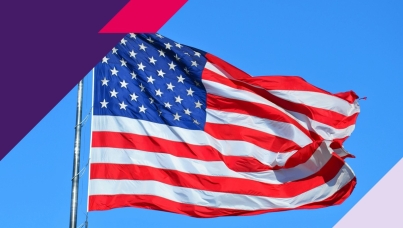Many Employees Feel Compelled to Connect Outside of Work Hours
At the same time, many have reservations about using their vacation time, as a quarter (26%) of employees report that they feel guilty using all of their allotted vacation days. Those who are most likely to report feeling such guilt include Millennials (40%), and to a lesser extent, those in Generation X (28%), compared to just 18% of Baby Boomers, and 8% of those in the Mature generation.
- Despite this sense of guilt, two-thirds (67%) report feeling more productive after they return from vacation, including one in five (21%) who strongly agree and close to half (46%) who somewhat agree.
Close to half (47%) of employees also report feeling guilty if they do not work, either on site or from home, when they are sick. Again, it's the younger generations who are more likely to have trouble disconnecting, as 54% of Millennials and 50% of Gen X feel guilty not working even when they are ill.
Many Feel Compelled to Check Email after Hours
The apparent difficulty in disconnecting from work life is also apparent in the extent to which employees feel obligated to respond to email after hours. Nearly half (45%) feel compelled to monitor their emails once their work day is over. Millennials (52%) and Gen X (47%) are more likely to feel this obligation than are Baby Boomers (39%).
Few Feel that Blurring of Home and Work Has Increased Their Productivity
Though many are finding it difficult to disconnect from work, just one-third (33%) of employees that the blurring of lines between work and home has increased their productivity, particularly Millennials (42% vs. 34% of those in Generation X, and 27% of Baby Boomers). In contrast, two-thirds of employees (67%) disagree that such blurring increases their productivity.
These are some of the findings of an Ipsos poll conducted on behalf of Randstad from April 1 - 8, 2014. For the survey, a national sample of 2,257 adults aged 18 and older who are currently employed full-time from Ipsos' U.S. online panel were interviewed online. Weighting was employed to balance demographics and to ensure that the sample's composition reflects that of the U.S. population of working adults according to U.S. Census Bureau data and to provide results intended to approximate the sample universe. A survey with an unweighted probability sample of 2,257 and a 100% response rate would have an estimated margin of error of +/- 2.1 percentage points 19 times out of 20 of what the results would have been had the entire population of employed adults aged 18 and older in the United States been polled. The margin of error will be larger within sub-groupings of the survey population. All sample surveys and polls may be subject to other sources of error, including, but not limited to coverage error, and measurement error.
For more information on this news release please contact:
Rebecca Sizelove Associate Vice President Ipsos Public Affairs 212.584.9253 [email protected]
About Ipsos Public Affairs
Ipsos Public Affairs is a non-partisan, objective, survey-based research practice made up of seasoned professionals. We conduct strategic research initiatives for a diverse number of American and international organizations, based not only on public opinion research, but elite stakeholder, corporate, and media opinion research.
Ipsos has media partnerships with the most prestigious news organizations around the world. In the U.S., UK and internationally, Ipsos Public Affairs is the media polling supplier to Reuters News, the world's leading source of intelligent information for businesses and professionals. Ipsos Public Affairs is a member of the Ipsos Group, a leading global survey-based market research company. We provide boutique-style customer service and work closely with our clients, while also undertaking global research.
To learn more, visit: www.ipsos-na.com
About Ipsos
Ipsos is an independent market research company controlled and managed by research professionals. Founded in France in 1975, Ipsos has grown into a worldwide research group with a strong presence in all key markets. Ipsos ranks third in the global research industry.
With offices in 86 countries, Ipsos delivers insightful expertise across six research specializations: advertising, customer loyalty, marketing, media, public affairs research, and survey management.
Ipsos researchers assess market potential and interpret market trends. They develop and build brands. They help clients build long-term relationships with their customers. They test advertising and study audience responses to various media and they measure public opinion around the globe.
Ipsos has been listed on the Paris Stock Exchange since 1999 and generated global revenues of e1,712,4 million (2 274 M$) in 2013.
Visit www.ipsos.com to learn more about Ipsos' offerings and capabilities.



